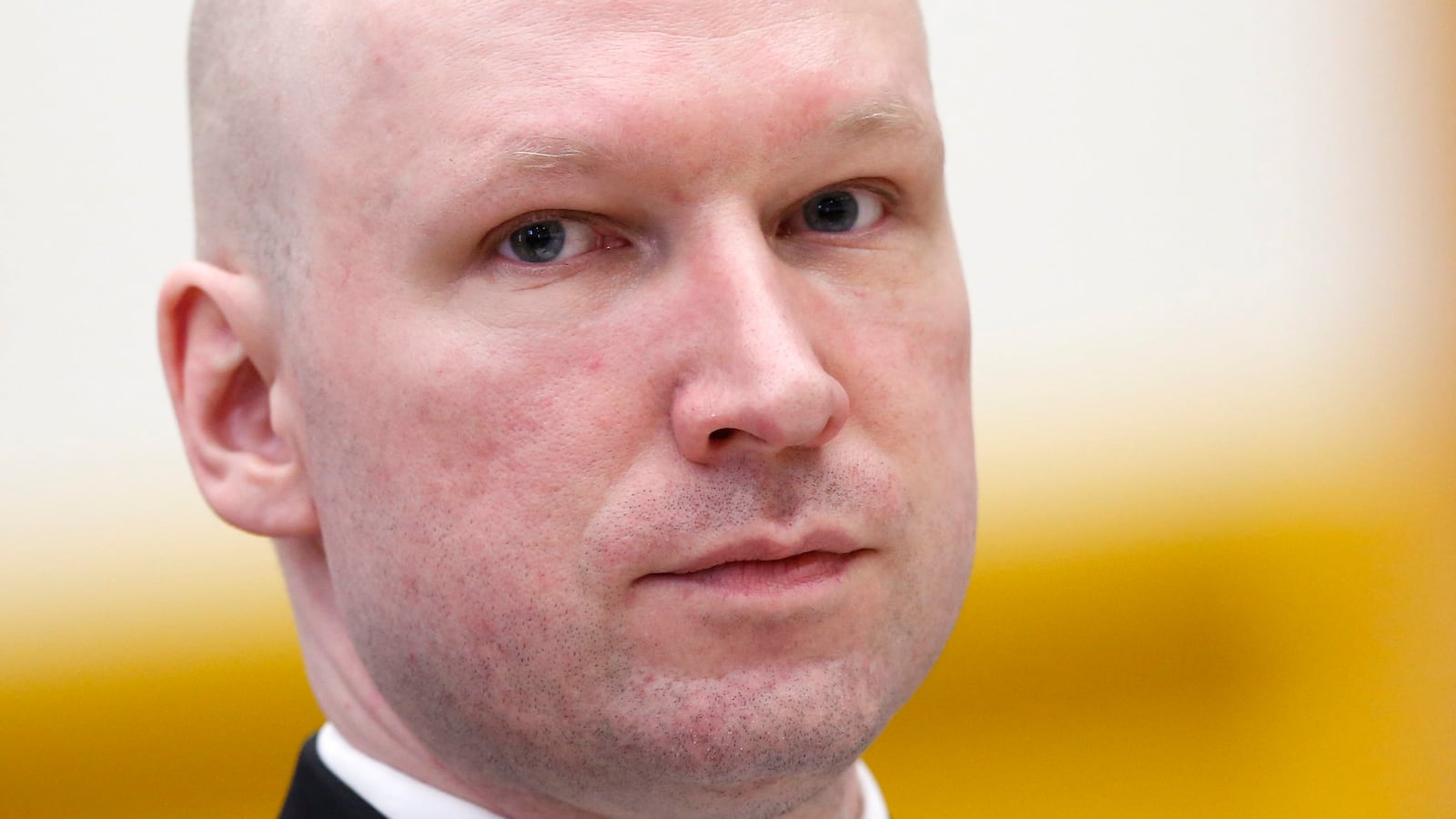A Norway court just ruled that the prison where mass-murderer Anders Breivik is being held violated his human rights—but the perks he enjoys at the Scandinavian lock-up are downright plush.
On Wednesday, an Oslo district court awarded Breivik—who killed 77 people in a 2011 shooting spree, including 69 children at the Utoya summer camp—with 331,000 kroner (roughly $40,600) and a promise for improved living conditions. Ruling from a makeshift courtroom in the prison gym, the court judged his solitary confinement and nude searches by prison guards to be inhumane.
But Breivik’s prison conditions, which the Norwegian court ruled “inhuman or degrading treatment,” would be considered luxe in most U.S. college dorms, let alone a U.S. prison.
Breivik’s private prison compound consists of three personal cells: “one for living, one for studying, and a third for physical exercise,” according to Agence France Presse.
The studying space is important for Breivik: in 2015 he enrolled in political science courses at the University of Oslo. A university representative will visit his cell to teach the classes, as Breivik is not allowed to access the Internet on his in-cell computer.
Yes, he has a personal computer in his cell. He also has a personal television and a Playstation 2, which he deemed insufficient, threatening to go on a hunger strike if it was not upgraded to a Playstation 3, AFP reported in 2014.
Breivik’s grievances extended to the quality of the rubber pens in his cell.
“If it were theoretically possible to develop rheumatism, I am convinced that this rubber pen would be capable of causing it,” Breivik wrote in a letter obtained by the New Yorker. “It is a nightmare of an instrument and I am frustrated by its use.”
From the confines of his three-room cell, Breivik is able to do his own laundry and cook, even making a gingerbread house for a prison competition, the BBC reports. He has access to an exercise yard, newspapers, and phone calls. And unless Breivik is considered an immediate danger to society at the end of his sentence, he is only confined to prison for 21 years, the maximum sentence available in the country.
Breivik’s brief sentence and comparatively cushy quarters are commonplace in Norway, a country that prides itself on its progressive prison system. Norwegian prisons focus on rehabilitation, rather than punishment. Sentences are short, 90 percent of them under a year, and inmates are allowed surprising freedom within prison walls. The Norwegian prison Bastoey looks more like an island town than a detention center, with inmates walking freely between buildings and tending to the island’s farm. In the high-security Halden prison, inmates work with knives in the kitchen, and guitars in the facility’s music studio.
Breivik, a maximum-security inmate, will not likely be allowed to live on a prison-turned-farming colony any time soon. But the Oslo court ruled that his solitary confinement and nude searches constituted a breach of human rights, though the ruling did not describe how his conditions would change in the future, CNN reports.
Despite the devastating effects of Breivik’s crime, even some Norwegians agree that his prison conditions should improve.
“Our best weapon in fighting extremism is humanity,” Bjorn Ihler, a survivor of Breivik’s 2011 massacre tweeted on Wednesday. “The ruling in the Breivik case shows that we acknowledge the humanity of extremists too.”





